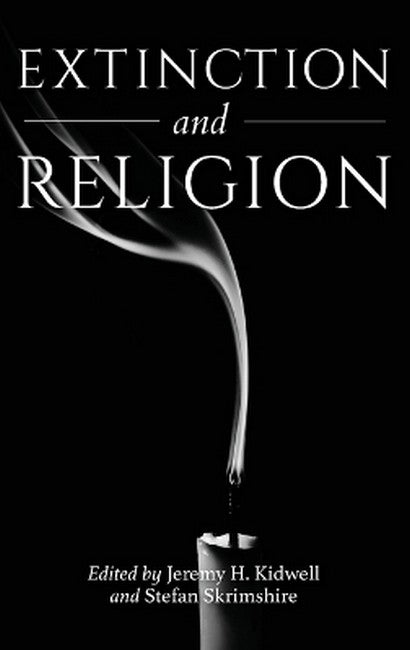Jeremy Kidwell is Associate Professor of Theological Ethics at the University of Birmingham. His research is action oriented and interdisciplinary, engaging environmental ethics with geospatial data science, activist and multispecies ethnography, critical work in religious studies, and constructive moral theology. His first book The Theology of Craft and the Craft of Work explored an ecological theology of craft, developed in conversation with ancient accounts of craft work and contemporary writing on work and design. Stefan Skrimshire is Associate Professor of Theology and Religious Studies at the University of Leeds. He researches the intersection of religious and political responses to the ecological and climate emergency. He is author of Politics of Fear, Practices of Hope and editor of Future Ethics: Climate Change and Apocalyptic Imagination. He lives in the Low Impact Affordable Living Community (LILAC), the UK's first affordable, ecological cohousing community, in Leeds.
Request Academic Copy
Please copy the ISBN for submitting review copy form
Description
Foreword, by Catherine Keller Acknowledgments Introduction: Questioning Extinction, Questioning Religion, by Jeremy H. Kidwell and Stefan Skrimshire 1. Loving Swarms: Religious Ethics Amidst Mass Extinction, by Willis Jenkins 2. Absence and (Unexpected) Presences: Reflecting on Cosmopolitical Entanglements across Time, by Jeremy H. Kidwell 3. Sacred Waters, Sacred Earth: Contemporary Paganism inside Extinction Rebellion: A Relational Analysis of Protest Death Rituals, by Maria Nita 4. Re-Planting a Tree of Peace: Naturalizing Relations in an Age of Extinction, by Timothy B. Leduc 5. A World in Exile? Extinction, Migration and Eschatology, by Stefan Skrimshire 6. Oceanic Extinctions and the Dread of the Deep, by Catherine Rigby 7. Praising Salmon: Creaturely Discernment in a Time of Species Metacide, by James Hatley 8. Resisting De-Extinction: The Uses and Misuses of Wonder, by Lisa H. Sideris Bibliography Index
"A wonderfully well-conceived and integrated collection that advances almost single handedly the discussion of religion and extinction. These rigorous essays by leading scholars are painful but vital reading as they direct our attention again and again to specific species, including our own. Certain to be of interest across the environmental humanities, this volume in its methodological variety and thematic diversity will shape the field."-Peter Manley Scott, University of Manchester "The solutions to the problems of climate change, loss of places, and mass extinction cannot be found in better science and greener technology alone. As the essays in this volume so clearly argue, we must also address our basic desires, dreams, hopes, and despairs, in order to stay connected to the earth and fellow earthlings, and in order to work toward healing our planetary ills."-Whitney Bauman, Florida International University

